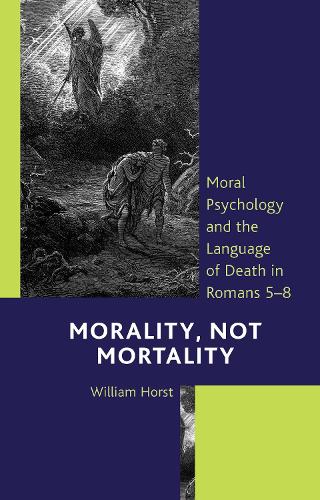
Morality, Not Mortality: Moral Psychology and the Language of Death in Romans 58
(Hardback)
Publishing Details
Morality, Not Mortality: Moral Psychology and the Language of Death in Romans 58
By (Author) William Horst
Bloomsbury Publishing PLC
Lexington Books/Fortress Academic
28th June 2022
United States
Classifications
Professional and Scholarly
Non Fiction
Christianity
Ethics and moral philosophy
Religious ethics
227.106
Physical Properties
Hardback
250
Width 160mm, Height 227mm, Spine 24mm
535g
Description
This study argues that the language of death as a present human plight in Romans 58 is best understood against the background of Hellenistic moral-psychological discourse, in which death refers to a state of moral bondage in which a persons rational will is dominated by passions associated with the body. It is death of this sort, rather than human mortality or a cosmic power called Death, that entered the world through the transgression of Adam and Eve in Eden. Moral death was imposed on humanity as a judgment against this initial transgression, in order to increase sinful behavior, which ultimately serves to increase the magnitude of the glorious revelation of Gods grace through Jesus Christ. Likewise, creations subjection to corruption and futility in Romans 8 involves the detrimental effects of human moral corruption, not the physical corruption of death and decay. Ultimately, the plight on which Paul focuses much of his attention throughout Rom 58 is a matter of morality, not mortality.
Reviews
A wonderful example of how to pay strict attention to what Paul wrote, in the context of his time and place. This context includes the Greek world of philosophy and psychology, according to which enslavement to passions was considered a kind of death. Under Horsts guidance, we see that this was the consequence of Adams sin that Christ came to remedy, not the reversal of bodily mortality.
-- Henry Ansgar Kelly, University of California, Los AngelesAuthor Bio
William Horst is adjunct instructor at Fuller Theological Seminary and Azusa Pacific University.
